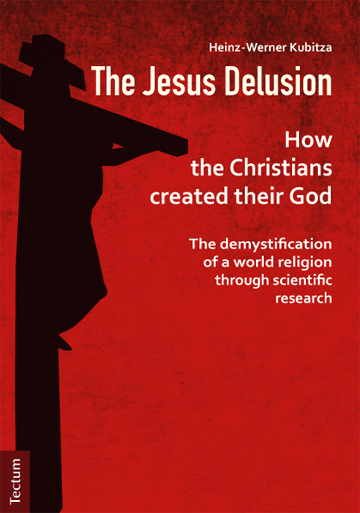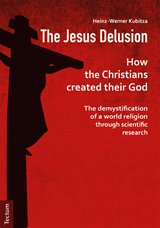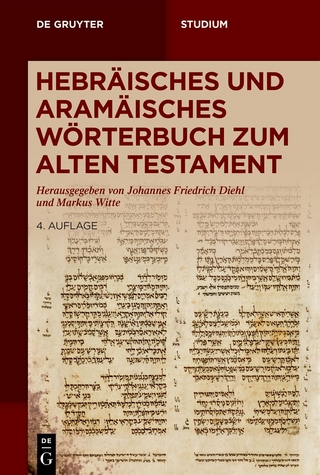The Jesus Delusion
Tectum Wissenschaftsverlag
978-3-8288-3538-2 (ISBN)
Heinz-Werner Kubitza lives in Germany and studied Protestant theology in Frankfurt, Tübingen, Bonn and Marburg and graduated with a Ph.D. in theology. He is the founder of the Tectum Verlag publishing house in Marburg and a member of the board of the Giordano Bruno Foundation, which works toward promoting Enlightenment values and a humanistic ethic. In 2007, the foundation awarded Richard Dawkins the Deschner Award. While Dawkins takes a critical view of all religions, Kubitza focuses specifically on Christianity.
INTRODUCTION
1. THE EMBARRASSING GOD OF THE OLD TESTAMENT
Yahweh – God of war and violence
A hodgepodge of history in the Old Testament
Career of a God – part 1
The Old Testament – deficient ethics
2. THE QUESTIONABLE GOD OF THE NEW TESTAMENT
Career of a God – part 2
Can a God change himself?
Jesus – a religious fundamentalist?
Dubious stuff in Paul’s writings
The terrors of the Apocalypse
So which God it is supposed to be?
3. JESUS OF NAZARETH – A DEMYSTIFIED SON OF GOD
The silence of the sources
The long march to the gospels (The theory of the two sources – Paul’s lack of interest in Jesus – The gospels (questionable sources on Jesus) – Pious cheating to the higher glory of God – It started with Paul – Invented authors’ names – Falsifications by the synoptic authors – John - a whole gospel as pious fiction – Old and new research on the life of Jesus)
Jesus’ birth and lineage (The appearance of Jesus)
Legends of the birth
Jesus, a disciple of John the Baptist? (John baptizes Jesus)
Jesus’ cardinal error – the Kingdom of God did not come (Proclamation of the Kingdom of God by Jesus – The role of Jesus in the Kingdom of God – Embarrassments – the adventism of the first Christians)
Jesus did not want a world mission
Jesus as a miracle worker and exorcist (Are miracles possible?)
Was Jesus’ teaching really new? (Positive aspects in the teaching of Jesus – Dubious matters in his proclamation – Contradictions – final remarks on Jesus’ ethics)
The execution of Jesus (The reinterpretation of the defeat on the cross – Idealizations in the gospels – Who is to blame for the death of Jesus? – The beginnings of Christian hatred of Jews – Inconsistencies in the trial of Jesus – Why was Jesus killed? – Other turbulent figures around Jesus)
The legends of the resurrection (Hypotheses on the original miracle of Christianity – Contradictions in the records of the resurrection of Jesus – Apparitions of an undead person – “If Christ did not rise from the dead, your preaching is in vain”)
So who was Jesus in reality? (Who did he think he was? Jesus’ self-concept)
The gradual apotheosis of the man Jesus
Christianity as an error of world history – preliminary conclusions
4. IN THE SORCERER’S FOREST OF DOGMAS – THE MAIN TEACHINGS OF CHRISTIANITY
True God and true man – contradictions as higher wisdom
The Divine Trinity
A bloody redemption on the cross
A distorted view of the world and of human beings (The mythological derivation of sin – Sin in the service of the Church)
Poverty and shortcomings in the view of man
Defamation of women (Celibacy and the degradation of marriage)
Mythological explanations of the world (Hell – Purgatory – Abolishing limbo – Devils, demons, and exorcismv The angels)
The cult of Mary (The misunderstood mother of God – Virgin birth – Glorification of Mary, debasement of women)
Belief in the Bible and biblical fundamentalism
Christianity as an ideology and esotericism (Religion is ideology – Belief is superstition – Religion and esotericism – Esotericism as a sellout of the mind – Is Christianity an esotericism?)
Prayers
5. IN SEARCH OF CHRISTIAN VALUES
On the value and shamefulness of the Ten Commandments
Evil words in the Bible
Are faith, hope, and love really virtues?
Jesus, a dubious model
Where do our values really come from?
Why still Christianity?
CAREER OF A GOD – FINAL PART (IN PLACE OF AN EPILOGUE)
LITERATURE CONSULTED
| Erscheinungsdatum | 16.08.2016 |
|---|---|
| Sprache | englisch |
| Maße | 148 x 210 mm |
| Gewicht | 375 g |
| Themenwelt | Religion / Theologie ► Christentum ► Bibelausgaben / Bibelkommentare |
| Schlagworte | agnosticism • Atheism • Bible • Christentum • Christianity • Christi Geburt bis 500 • Critical inquiry • critical research • critical research on religion • critical theory on religion • Criticism of religion • Dawkins, Richard • Entmythologisierung • Forschung • Historical Jesus • Humanism • Humanistische und weltliche Alternativen zu Religi • Israel • Jesus • Jesus Christ • Jesus Christus • Jesusforschung • Neues Testament • Religionskritik • sceptic • scientific atheism • Secular • skepticism • Yahweh |
| ISBN-10 | 3-8288-3538-4 / 3828835384 |
| ISBN-13 | 978-3-8288-3538-2 / 9783828835382 |
| Zustand | Neuware |
| Haben Sie eine Frage zum Produkt? |
aus dem Bereich




